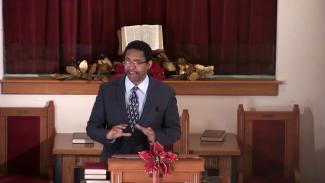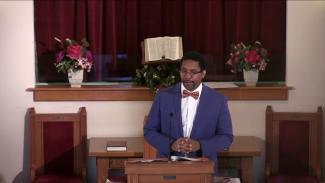What is the relationship between science and the Bible? Did the Bible ever teach a flat earth? Did the Creation story borrow from ancient myths? Can we be certain about Biblical history or when that history took place? How did the New Testament authors and Jesus, Himself, view the Creation account?
Topic: Building Faith
To see more broadcasts select show names, a year, or all video media.Why do we need to interpret scripture? Is there a right or wrong way? Can scripture be understood correctly? What is hermeneutics? What biases might we have in culture, language, presuppositions, or our personal lives that make it difficult to understand the Bible in its proper context? How does our sinful and fallen nature play a role? Who was the first revisionist?
Are there times when faithfulness to God and your responsibilities in secular matters can lead to jealousy? Are there people who conspire against you when you do the right thing? Daniel finds himself in the lions den as King Darius makes an ill-advised law that requires Daniel to choose between God and the king. Daniel would have to choose between his conscience or his faith. Are we sometimes put in these situations today? How can we respond? How does God respond?
What does it mean to stand for your faith? How could someone forget God after an encounter with God? How does faith grow? How does the experience of the 3 Hebrews connect with the experience of God's people in the end times and religious liberty? Should worship be forced?
What does the Bible reveal about the course of human history? Is God in control of the destiny of humanity? Where is human history headed? What does prophecy reveal for the end times? How did God make Himself known to king Nebuchadnezzar through the prophet Daniel? What does that mean for us today?
How do you keep your faith when you’re surrounded by ideas, philosophy, another religion, and people that are antagonistic to what you believe? The three Hebrews and Daniel’s obedience, even in small things, led to gaining favor and influence while he was a captive in Babylon. God is sovereign over history and cares about His people.
John Spellman preaches on Transformative Acceptance. In an age where so many are looking for acceptance how can we define what acceptance is? What should it look like in the church? For what purpose does God accept those who come to Him? What is transformation?
How does God lead us to repentance and spiritual revival? When the feasts were over, How did the Israelites in Nehemiah's time go about the work of confession and repentance? What subjects were addressed in their prayer? What role does the Bible play in revival?
What impact did the Word of God play in the revival of the captives returning to Jerusalem? What did they learn from Ezra as the Law of Moses was read and explained to the people? What was the proper response to their understanding of their need for repentance? What was the significance of the Feast of Tabernacles?
How did God encourage the Jews to rebuild even in times of great opposition? What role did Haggai, Zecharaiah, Nehemiah, Ezra, Zerubbabel, Jeshua, and others play? What lessons about ministry and working for God can we learn from their story?
How is the church to serve the community? Is there a difference between acts of compassion and preaching the gospel in the context of the 3rd angel’s message? Or do both go together? How should members of the church treat one another? Why? How can we better be unified and work together? How does justice, grace, and love tie in to all that we do?
The mind is most easily deceived when it’s attention is not focused where it should be. The moment you get distracted, the moment you get pulled in a particular direction. You can miss something you should have seen but didn’t see because your eyes weren’t where they needed to be.












